
Introduction
We always face difficulty not knowing which product is suitable for our different skin types and which product to choose from the many product lines we see every day posted on the different social media platforms whose purpose is the same. If we take cleansers as an example, we will find hundreds of brands, with each brand having at least 2 to 5 different cleansers, each for a different skin type or a different usage. Then comes the real question: which product should I get to be more suitable for my skin type?
Our body’s protective shield and defense
Many of us don’t recognize that our skin is an organ. We wake up every day and go through our day without thinking about the importance of our skin. Is it just a layer of soft tissue covering our muscles and bones? Let’s find out together!
Skin is the largest organ which covers the entire body surface. It’s made up of three layers: the epidermis, dermis, and subcutaneous layers, all three of which vary significantly in their function. The skin’s structure is made up of an intricate network that serves as the body’s defense against pathogens, UV light, chemicals, and external injury. It also regulates the body temperature through sweat.
The outermost layer is the epidermis layer, which constantly sheds dead cells from its surface and new ones grow to take their place. It also has cells called melanocytes, which produce melanin responsible for your skin color. The epidermis is also the main body’s defense, also known as the skin barrier. Beneath it is the dermis layer, which contains the sebaceous glands (sweat glands) and hair follicles. The final deeper layer is the subcutaneous layer, which contains a layer of fat that acts as a safety barrier to protect the muscles and bones from bumps and falls and contains blood vessels and nerves.
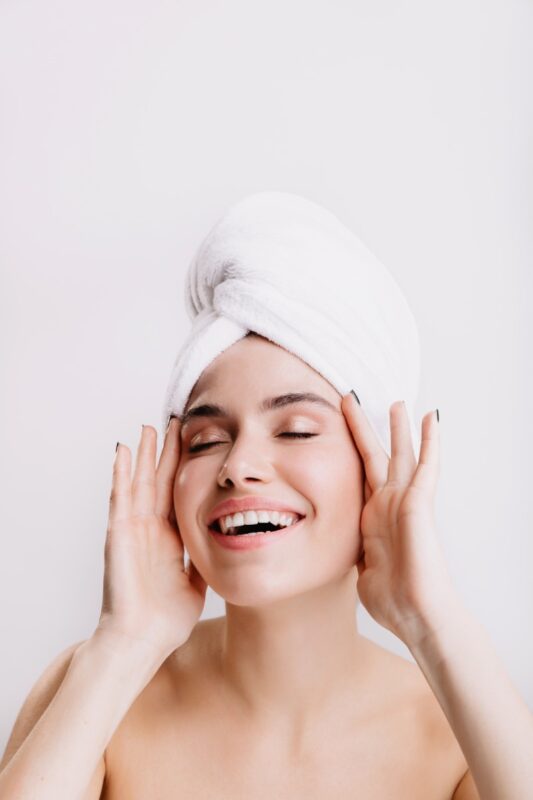
Quick ways to determine your skin type
The first method is the “Bare-faced method”:
- Start by using a cleanser that is mild.
- Then gently dry your skin without scrubbing.
- Leave your bare skin without applying anything to it
- Wait for 30 minutes.
- If your skin feels tight, flaky, or looks white or gray, then you probably have dry skin.
- If you find that your skin looks shiny all over, you probably have oily skin.
- If only part of your skin, such as the T-zone, looks shiny but other parts, like your cheeks, look and feel tight, flaky, or white or gray, then you probably have combination skin
- If your skin doesn’t feel any different or uncomfortable, looks hydrated, and isn’t shiny, then you probably have normal skin.
Quick ways to determine your skin type
The second method is the “Blotting sheet method”:
- Start by using a cleanser that is mild.
- Then gently dry your skin without scrubbing.
- Leave your bare skin without applying anything to it.
- Wait for 30 minutes.
- Take blotting sheets and press them against your face in multiple different areas
- Then take the sheets and place a light source behind them to see the oil marks.
- If you find that the sheet is soaked and has oil all over it, then you probably have oily skin.
- If you find that you have almost no oil at all on the sheet, then you probably have dry skin.
- If you find a little amount of oil on the sheet, mainly from the T-zone area, then you probably have combination skin.
- If you find an insignificant amount of oil from all over your face, then you probably have normal skin.
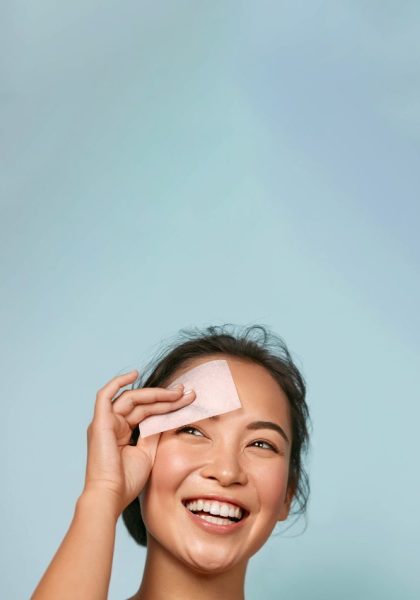
General steps to integrate in your lifestyle for healthy body and skin
Maintain a healthy diet
This doesn’t mean you have to start thinking about limiting your portions or removing the things you like. It simply means that you must consider if what you are eating is doing any harm, as your body health is affected by everything, and so it also affects your skin.

Drink enough water
Our skin is made of 70% water, so you need to drink enough water a day to stay hydrated. If it seems hard to accomplish, then we can take it one step at a time and increase the amount of water to drink daily by small portions. Maybe even take a different approach and drink one cup before and after each meal. We want to have hydrated and glowing skin, not skin that is too dry or too oily.

Wash your face
Washing your face when you wake up helps remove any sweat and oil on your face. It will also help freshen us up in the morning before we go through the process of thinking about what our tasks are for the day. You should also wash your face before going to bed at night. Some might think there is no importance to this step, but this is crucial since we all live in different areas with different weather conditions. So, we want to remove any dirt, bacteria, or built-up oil that could possibly clog our pores. Don’t wash more than two times daily. Make it a habit not to scrub or exfoliate your skin as it removes oils that your skin needs. When looking for a cleanser, you must choose a product that is suitable for your skin type. That is because every skin type needs to be treated differently.

Use sunscreen
Whenever you are going out, you must use sunscreen with the highest SPF you can find, as it is your skin's shield that helps protect it against the sun’s UV light rays. It should be reapplied every two hours since we sweat throughout the day. Choose a sunscreen suitable for your skin type.
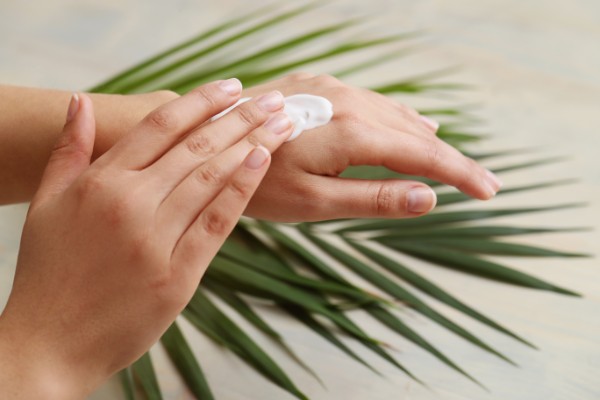
Use a moisturizer
We usually believe that not all skin types need to use moisturizer, and only those who need it are those with dry skin, which is not true. A moisturizer is needed to keep the skin hydrated and is applied according to the number of times specified on the product. If needed, consult your doctor. Choose a moisturizer suitable for your skin type.
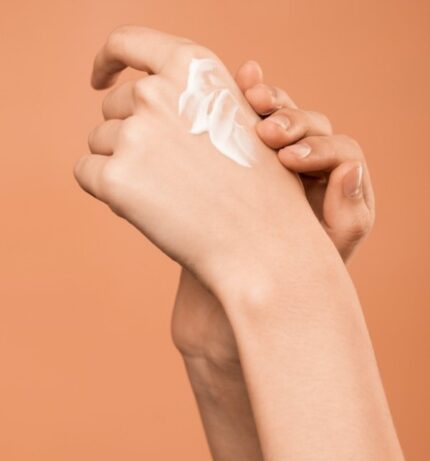
Always remove your makeup after a long day outside
Similar to how dirt, bacteria, and built-up oil clog your pores, makeup has the same effect. So, we want clean pores to avoid breakouts. Start by using preferably micellar water and cotton pads and gently dab the product on your skin, then continue in a circular motion. This will breakdown makeup molecules. Avoid using makeup wipes since they use chemicals that will clog your skin pores and are harsh on the skin, resulting in irritation, breakouts, and dry skin. Double cleanse: after removing your makeup, wash your face with a cleanser suitable for your skin. This will remove any dirt or left-over makeup residue. Finally moisturize.
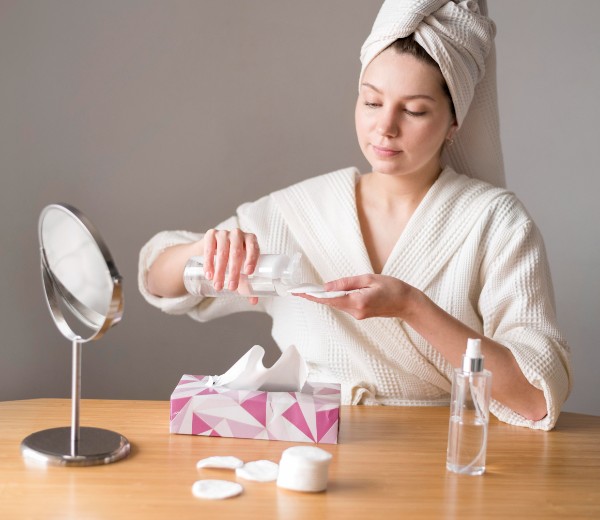
What are the skin types ?
We all strive to have a healthy skin barrier, which is our shield against harsh weather and bacteria and acts as a water-resistant barrier so essential nutrients are not washed out of the body. Now, how do we achieve this if we have different skin types, all of which have unique properties and, of course, can’t have a generalized solution. Each skin type has unique properties that set it apart from another, and this is what we will learn together. There are four types of skin: normal skin, oily skin, dry skin, and combination skin.
Normal Skin
This type of skin achieves a level of balance since it isn’t on any of the extremes. Not extremely dry or extremely oily. Those who have normal skin don’t have to regularly worry about their skin breaking out or having any flakiness, greasiness, or tightness.
What are the characteristics of normal skin ?
- Small pores
- Smooth texture
- No blemishes, redness, or sensitivity
- Little to no breakouts
However, to maintain a healthy skin barrier, we need to follow a few simple steps to keep our skin hydrated, radiant, and support our skin shield (epidermis), but of course we also need to achieve balance with the things we use and how many times we use them to not do harm instead of good. Too much of a good thing becomes a bad thing.
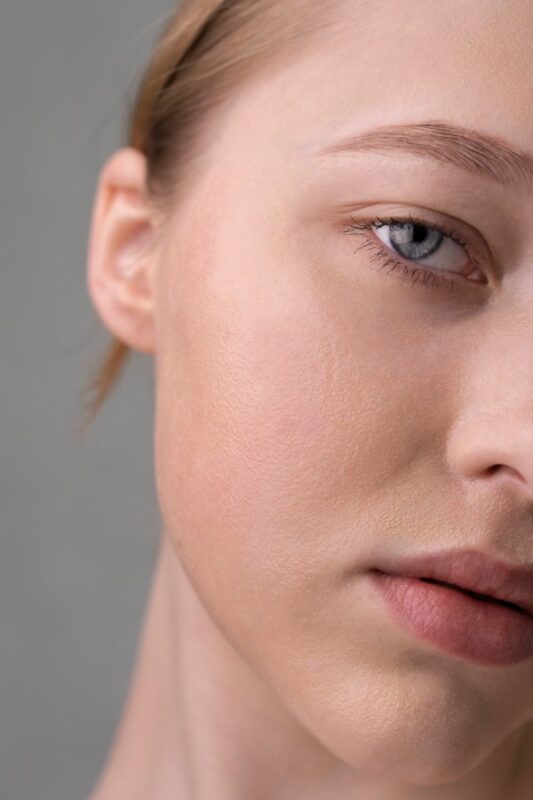
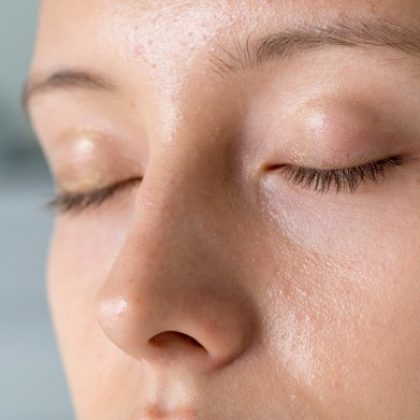
Oily Skin
This type of skin has a high level of sebum production, which, in other words, means natural oil. This will often make your face look shiny and greasy. The most common area that will look shiny is the T-zone area, consisting of the forehead, nose, and chin.
Why do we get oily skin ?
- It could be genetic
- Stress induced
- Cause of medication
- Due to a hormonal imbalance
- Wrong products we chose
- Humidity
What are the characteristics of oily skin ?
- Large pores
- Shiny skin
- Skin breakouts (acne): during breakouts, it is a must not touch your face, as we want to avoid popping acne (blackheads and whiteheads), and this will help prevent it from spreading.
Dry Skin
This type of skin has a low level of hydration and sebum production, which will often make the skin appear dull, flaky, and grey or white. This type of skin is also prone to infections, as it may sometimes become cracked without proper care. You will need to avoid several things, such as fragranced soaps, products that contain alcohol as an ingredient, scrubbing, using hot water, or staying in the shower for long periods of time. Not only that, but you also need to make it a habit to wear gloves when using any chemical products. We all use detergents and cleaning products around our home all the time, so it is preferred to wear gloves while using any of these products to avoid causing any irritation to the skin.
Why do we get dry skin?
- Low air humidity
- Staying too long in hot water
- Genetic
- Environment conditions
- Hormonal imbalance
- Certain medications
- Choosing the wrong skin care products
What are the characteristics of dry skin ?
- Small pores
- May look dull, rough, flaky, or cracked
- Feels tight
- Visible fine lines
- Irritation, itchiness, redness, and burning sensation

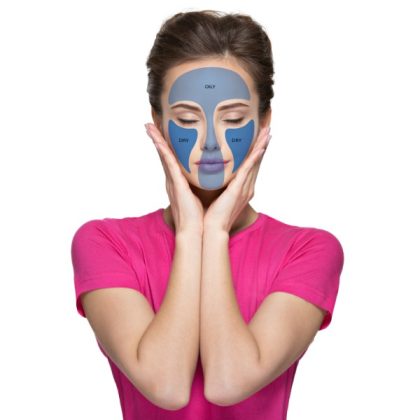
Combination Skin
This type of skin is a mix of dry and oily skin. The T-zone (forehead, nose, and chin) is usually the oily area, while the cheeks have normal or dry skin.
Why do we get combination skin?
- Stress
- Hormonal imbalance
- Wrong products or wrong usage of products
- Overproduction of sebum in some areas and lack of production in other areas
- Environmental conditions
What are the characteristics of combination skin?
- Oily T-zone and normal to dry cheeks
- Large pores
- Acne in the T-zone area
- Shiny skin in oily areas
- Dull or sensitive skin in the dry area
This was your guide to knowing the different skin types there are and how to be able to differentiate between them easily, which will help when choosing the right product for our skin since many skin problems start from choosing the wrong product. A final note to take into consideration is to make sure you haven’t exceeded the valid period when you can use the products, as they are not safe for usage anymore and may be one of the reasons that damage your skin.

